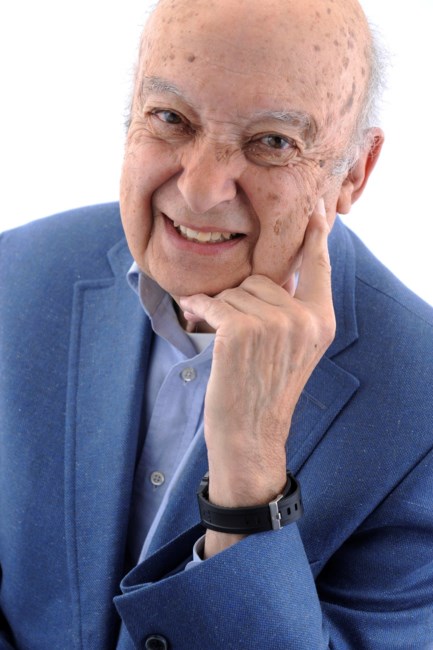
AVIS DE DÉCÈS
Marshall I. Goldman
26 juillet 1930 – 2 août 2017

He led his life with great vibrancy, spirit, devotion and generosity to students, friends, family and community. He was the patriarch of a spirited and close family of more than 20 members, who still spend all the major holidays together. He had a strong moral compass which he passed on to his children and grandchildren.
Goldman was one of the first Kremlinologists to foresee the downfall Mikhail Gorbachev due to the economic shortcomings of the Soviet system. In 1987 he was noted as the only expert who predicted that Gorbachev would lose power within 2-3 years. His prediction was reported on the front page of The Washington Post (https://www.washingtonpost.com/archive/politics/1987/11/22/sovietologists-focus-on-gorbachevs-status/46c656b7-a5d6-4d64-8f84-56f60a77cdea/?utm_term=.1b2712a169b5). During the 1970s and 80s as the Cold War dominated world headlines, Goldman was a frequent commentator for ABC’s Good Morning America and NPR. He was an advisor to several American presidents, and often met with Gorbachev and Vladimir Putin.
Marshall Irwin Goldman was born July 26, 1930 in Elgin, Illinois to Sam and Bella Goldman. His parents ran a liquor distributorship. Marshall worked with the business during the summers, but ended up leaving Elgin when he gained acceptance to the Wharton School at the University of Pennsylvania. After graduating from Penn in 1952, he went on to Harvard University where he pursued his Masters and PhD in Economics, which he received in 1961. At Harvard, he developed an interest in comparative economic systems, and the Soviet economy in particular. He was drafted and served two years at Fort Hood, where he taught classes and developed an affinity and a talent for teaching. Goldman was hired to teach economics classes at Wellesley College, and spent the rest of his professorial career there. He was chosen as the Kathryn W. Davis Professor of Economics, named after the Wellesley College alum with whom Goldman developed a close and enduring friendship. In 1977 he taught economics at Moscow State University as a Fulbright-Hays lecturer.
Goldman took great pride in developing Wellesley’s economic department, making it the school’s most popular major under his leadership, and producing many prominent American business leaders and policy makers. Upon his retirement, Marshall and his family endowed the Marshall I. Goldman Chair in Economics. Marshall also instituted the Economics Department's flagship annual Goldman Lecture which has been delivered by many of the world's leading economists, including 4 Nobel Prize winners. He was a strong advocate for women to become leaders in business and society whose legacy lives on in the many generations of Wellesley students he inspired. Students would gather at Wellesley Reunions to reminisce and celebrate with Marshall and shared their photographs with him when he could no longer attend Reunion.
He lived these beliefs in his life as well. He was a strong supporter of his wife, Merle Goldman, who achieved great distinction as a professor of modern Chinese history. He also instilled in his two daughters the confidence and expectation that they should pursue serious and meaningful careers, and both have, as a family doctor and professor of American Jewish history.
As part of his research on the Soviet economy, Goldman traveled throughout Africa and South Asia during the 1960s, research which formed the basis of his book, Soviet Foreign Aid, published in 1967. His 1972 book The Spoils of Progress, was one of the first academic works to highlight the environmental abuses perpetrated by the Soviets. Other notable books include Gorbachev’s Challenge in 1987 and What Went Wrong with Perestroika? in 1992.
He played a leadership role within Harvard’s Russian Research Center, where he was Associate Director. His longstanding relationship with Shelby and Kathryn Davis led to their major gift to the Center, which now bears their name. He also arranged for numerous Russian leaders and dissidents, including Andrei Sakharov and Boris Nemstov to spend time at the Center.
Goldman was an active leader in several charities including, including Hillel of Greater Boston, the Combined Jewish Philanthropy of Greater Boston, Boston Baroque, and the Klezmer Conservatory Band. A relentless champion of causes he believed in, he frequently enlisted his children to join him on fundraising calls. He was a founding board member of Century Bank, where he served for more than 49 years.
He was a fierce competitor on the Wellesley College squash court, where he was known to sweat and curse with abandon, alongside his favorite opponents, including Wellesley economics colleagues Karl E. Case and Akila Weerapana and Harvard Medical School’s Jim Sabin.
Goldman is survived by his wife of 64 years, Merle Goldman, and his four children, Ethan Goldman of West Hartford, CT, Avra Goldman of Cambridge, MA, Karla Goldman of Ann Arbor, MI, Seth Goldman of Chevy Chase, MD and twelve grandchildren. His sister, Rhoda Frank, lives in Chicago.
Memorial observance at his late residence following the burial and continuing Sunday 2:00-8:00pm. Mincha Minyan at 5:30pm on Sunday.
Kindly omit flowers. Remembrances may be made to The Merle and Marshall Goldman Endowment Fund for Jewish Campus Life; c/o CJP (Combined Jewish Philanthropies), 126 High Street, Boston, MA 02110 or Boston Baroque, 10 Guest St. Suite 290, Boston, MA., 02135.
Montrez votre soutien
Envoyez Vos
Condoléances
Partager
L'avis De Décès
Obtenir les mises à jour
Prestations de Service
Partager l'avis de décès
- Recevoir Des Avis
v.1.8.18